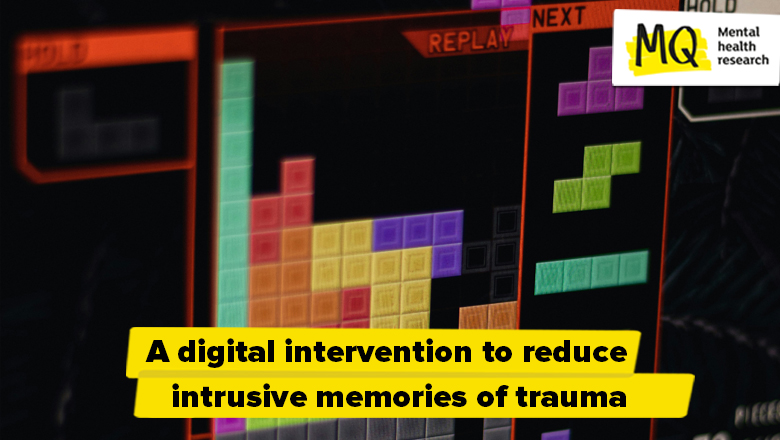
‘How can we make treatment for postnatal depression (PND) more accessible for ethnic minority women?’ This has been the question asked by many healthcare professionals and researchers.
Ethnic disparity in provision and access to PND services is particularly pronounced in British South Asian women which is the largest ethnic minority group in the UK (Office for National Statistics, 2022). A qualitative study on Black and South Asian women’s experiences of perinatal mental health (Conneely et al., 2023), examined in this blog, indicates that cultural or familial expectations, stigma around mental health or being involved in mental health services, and lack of visibility of services were major factors deterring ethnic minoritised women to seek help.
Culturally adapted intervention is strongly needed to address the current disparity of PND treatments among ethnic minoritized women.
Husain et al. (2024) set out to investigate whether a group-based culturally adapted CBT (cognitive behavioural therapy) intervention targeting British South Asian women (the Positive Health Programme (PHP)), can promote recovery from PND and improve other psychosocial aspects including parenting competencies, quality of life and social functioning.

The ROSHNI-2 study examined whether a culturally adapted CBT intervention can improve access to services and promote recovery from postnatal depression.
Methods
The Positive Health Programme (PHP) is a group-based intervention comprising culturally adapted CBT strategies for British South Asian women with postnatal depression. The programme consists of 12 group sessions over 4 months. It involves psychoeducation regarding PND and 9 culturally relevant topics such as the challenges of being a British South Asian woman, the role of spirituality and religion in mental health, issues affecting self-esteem and management of those issues.
PHP in the trial was delivered by non-specialist NHS band 4 to 7 research workers. The facilitators, who had no prior experience of delivering CBT, received training in facilitation, the Attitude-Behaviour-Control model of CBT and behavioural activation. During the COVID-19 period, delivery of the PHP intervention was switched from in-person to online.
The UK-based RCT took place from 2017 to 2020 at 5 study centres in areas with large South Asian populations across Northwest England, Yorkshire, the East Midlands, London and Glasgow. British South Asian women, who were aged 16 or older, met the DSM-5 criteria for PND and had an infant aged 0 to 12 months, were recruited through general practices, community centres and children centres.
The intervention group received PHP and treatment as usual (TAU) whilst the control group only received TAU such as routine mental health assessments, medications, care by GP and referral to talking therapies.
The study then compared the recovery from PND (defined as scoring ≤7 on the Hamilton Rating Scale for Depression (HRSD)) for British South Asian women between the intervention group and the control group after the intervention ended and 8 months post-intervention. Treatment responses, postnatal anxiety and psychosocial indicators, such as social functioning, parenting competence and quality of life, were also examined as secondary outcomes. The assessors were blinded to the group allocation and not involved in the intervention delivery.
Results
4,296 women were eligible for and consented to screening. 732 women screened positive for postnatal depression (55% Pakistani, 24% Indian, 18% Bangladeshi) with 368 women allocated to the PHP group and 364 women allocated to the control group.
Within the treatment group, 67% of women attended at least 1 out of 12 PHP sessions and were considered compliant with treatment. However, the amount of missing outcome data (defined as participants answering less than half of the questions on a given scale) was significant, with 23% of women having incomplete primary outcome measures. Intention-to-treat analysis was conducted which included completed outcome data only. Sensitivity analysis was also conducted with missing outcome data being coded as having depression.
In terms of primary outcome, women who received PHP were twice as likely to have recovered from PND compared to the control group after receiving the intervention (adjusted odds ratio 1.97 [95% CI 1.26 to 3.10]). However, the difference was no longer significant at 8 months post-intervention.
Regarding the secondary outcomes, women in the treatment group had shown higher rates of treatment response (≥50% reduction in HDRS score from baseline) after receiving PHP intervention. The treatment group also showed significantly lower anxiety and depression scores compared to the TAU group and higher treatment satisfaction. Nevertheless, the differences in these indicators became insignificant at 8 months post-intervention, except for the sense of parenting competence, where women who took part in PHP reported a significantly higher sense of parenting competence at 8 months post-intervention. Additionally, the two groups did not show significant differences in levels of health-related quality of life and social functioning at any time point.

South Asian women who took part in the Positive Health Programme were twice as likely to recover from postnatal depression compared to the control group. However, benefits were not maintained at 8-month follow-up.
Conclusions
British South Asian women who took part in the culturally adapted PHP intervention showed quicker recovery from postnatal depression, lower levels of anxiety and depression and a higher sense of parenting competence. However, these treatment effects were not sustained in the long term.

This culturally adapted intervention led to short-term improvements in depression and anxiety, with long-term improvements in parenting competence.
Strength and Limitations
This ROSHNI-2 trial made a significant effort to enhance recruitment and engagement of British South Asian women in research and in doing so, addressed stigma around PND. This involved community engagement work and using inclusive recruitment strategies such as promotion materials being available in South Asian languages and staff training in cultural awareness. Ensuring facilitators speak the language that the treatment group preferred also allowed for better communication and led to better treatment effects.
Patient and public involvement was also endorsed in the trial with a service user collaborator being part of the research team throughout the research proposal stage until dissemination and three British South Asian women with lived experience in the advisory group.
Additionally, the RCT had a stringent design with the research protocol being registered which enhanced the trial transparency. The participants were randomly allocated by an independent service and assessed by raters who were not involved in the treatment allocation and intervention delivery. This led to reduced selection bias and rater bias. However, it is worth noting that women not being masked in the treatment allocation might have affected the result. On the other hand, having 5 study centres across the UK covering demographics from diverse socio-economic background has also ensured the generalisability of the trial results.
The large amount of missing primary and secondary outcome data was a major limitation of the trial. A higher percentage of complete questions on a scale might be needed for more reliable analysis than the current definition of complete data (completing more than half of the questions in a particular scale). It was also unclear how the scores of incomplete outcome measures were calculated especially for the primary outcome measure (recovery from PND) defined as having a total score of ≤7 on the HDRS (i.e. if participants only completed 10/17 items on the 17-item HDRS). The HDRS score at baseline was also not reported which makes it harder to evaluate the relevant outcomes including the recovery from PND and treatment responses which are based on HDRS scores.
Despite considerable efforts made in recruitment and promoting engagement, the issue of recruitment and engagement from this underserved group remained challenging. Only 67% of the participants complied with the treatment based on a low threshold by the research team, attending 1/12 PHP sessions, though the impacts of COVID-19 need to be considered.
Despite having a significant primary result, it is worth noting that there was a 12% difference in recovery rate from PND, whilst previous literature has suggested at least a 20% difference is clinically meaningful (Rahman et al., 2008). One of the contributing factors to this diminished difference might be due to the research being underpowered; 23% of primary data was missing and the researchers opted for a lower power (15%) for their recruitment target.

This trial demonstrates a significant effort in improving engagement from South Asian women, however, engagement barriers remain as shown by incomplete data, attrition and issues with recruitment to the trial.
Implications for practice
The trial has indicated the feasibility and clinical efficacy of a culturally adapted group-based CBT intervention for British South Asian women with PND which might be generalisable to other ethnic minority groups and mental health conditions. Moreover, the feasibility of the CBT intervention delivered by non-specialist workers without training in CBT may widen the intervention’s accessibility where interventions can take place in broader community settings. As shown by the issue of incomplete data and low compliance to treatment in the trial, remote intervention is one of the strategies that may promote sustained benefits and improve engagement from ethnic minority groups. However, knowledge and access to technology are important factors to consider.
In terms of future development, researchers should investigate how to fit this Positive Health Programme (PHP) into existing healthcare system such as within the NHS and third-party sectors and consider factors including cost-effectiveness, staff and service users acceptance. Ultimately, future studies and health providers need to consider ethnic minorities’ perspectives in intervention and research development and carry out culturally adapted recruitment and engagement strategies.

This trial has highlighted that a culturally adapted CBT model may reduce postnatal depression in British South Asian women, but more work is needed to embed these kinds of programmes into the UK healthcare system, to ensure greater access.
Statement of interests
No conflicts of interests to declare.
Links
Primary Paper
Husain, N., Lunat, F., Lovell, K., Miah, J., Chew-Graham, C. A., Bee, P., … & Morriss, R. (2024). Efficacy of a culturally adapted, cognitive behavioural therapy-based intervention for postnatal depression in British south Asian women (ROSHNI-2): a multicentre, randomised controlled trial. The Lancet, 404(10461), 1430-1443.
Other References
Bauer, A., Knapp, M., & Parsonage, M. (2016). Lifetime costs of perinatal anxiety and depression. Journal of affective disorders, 192, 83-90.
Conneely, M., Packer, K. C., Bicknell, S., Janković, J., Sihre, H. K., McCabe, R., Copello, A., Bains, K., Priebe, S., Spruce, A., & Jovanović, N. (2023). Exploring Black and South Asian women’s experiences of help-seeking and engagement in perinatal mental health services in the UK. Frontiers in Psychiatry, 14.
Katta-Worae, M. (2024). How do Black and South Asian women experience perinatal mental health services? The Mental Elf, May 2024.
Office for National Statistics (ONS), released 29 November 2022, ONS website, statistical bulletin, Ethnic group, England and Wales: Census 2021
Rahman, A., Malik, A., Sikander, S., Roberts, C., & Creed, F. (2008). Cognitive behaviour therapy-based intervention by community health workers for mothers with depression and their infants in rural Pakistan: a cluster-randomised controlled trial. The Lancet, 372(9642), 902-909.
Yang, Y., Wang, T., Wang, D., Liu, M., Lun, S., Ma, S., & Yin, J. (2024). Gaps between current practice in perinatal depression screening and guideline recommendations: a systematic review. General Hospital Psychiatry.







